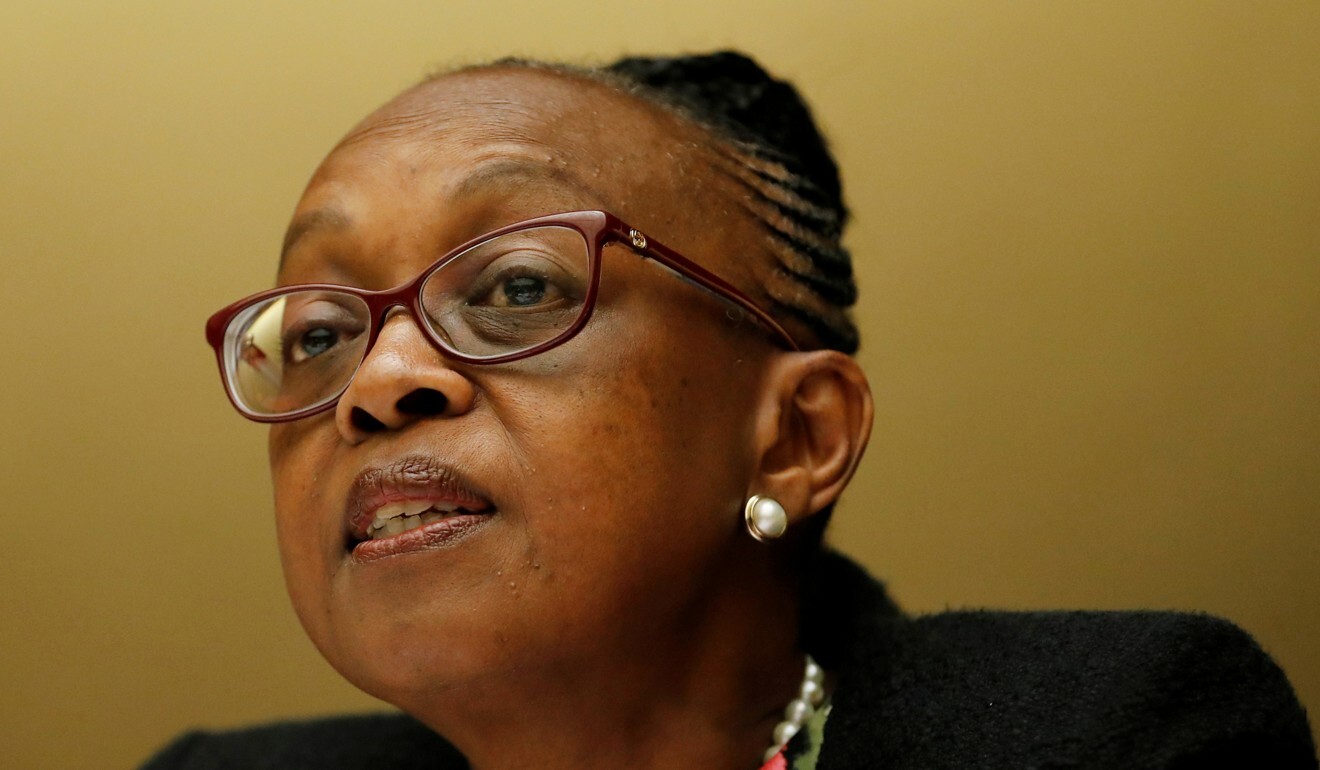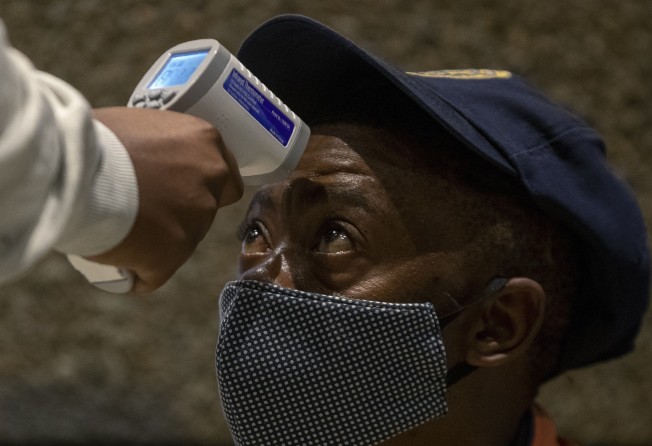
Coronavirus could infect 44 million in Africa if containment fails, World Health Organisation says
- As some countries ease lockdown measures, new modelling highlights risk of potential crisis facing the continent
- Hospitals could be overwhelmed if spread of Covid-19 is not kept under control, UN health agency says

As many as 44 million people in Africa could be infected with Covid-19 in the first year of the pandemic if containment measures fail – causing 83,000 to 190,000 deaths – according to modelling by the World Health Organisation, reflecting fears of a potential widening crisis on the continent.
The study, released on Thursday by WHO Africa, looked at 47 countries with a combined population of 1 billion people and suggested smaller countries alongside Algeria, South Africa and Cameroon were at a high risk if containment measures were not prioritised.
So far Africa has not been as hard hit as other regions but its vulnerable health care systems and economies – as well as other ongoing health emergencies in some countries – have alarmed health officials. A March study by the WHO estimated an average of just nine intensive care unit beds per million people.
WHO regional director for Africa Matshidiso Moeti said nearly 1,000 African health workers had been infected with Covid-19.
“We know that most African countries already have catastrophic shortages of health workers,” she said.

While there have been successes – notably in Namibia and Seychelles where there have been no new cases for a month thanks to surveillance and isolation regimes – the WHO warned hospitals could be overwhelmed if numbers were not kept under control.
The WHO modelling also suggested Africa’s slower rate of transmission and lower mortality from the disease could lead to a more prolonged outbreak over several years.
“While Covid-19 likely won’t spread as exponentially in Africa as it has elsewhere in the world, it likely will smoulder in transmission hotspots,” Moeti said.
“Covid-19 could become a fixture in our lives for the next several years unless a proactive approach is taken by many governments in the region. We need to test, trace, isolate and treat.”
The WHO said Africa’s lower rate of transmission was linked to its young population and long-standing control of communicable diseases such as HIV and tuberculosis, reducing possible vulnerabilities.
The implementation of curfews and lockdowns, as well as the ramping up of public health measures like surveillance, had helped to curb the spread of Covid-19, according to a report published on Tuesday by a coalition including the Africa Centres for Disease Control and Prevention and the WHO.
But it warned countries which are slowly lifting lockdown measures that they must now “find a balance between reducing transmission while preventing social and economic disruption”.
Africa may be particularly susceptible, with 56 per cent of its urban population concentrated in slums or informal dwellings. Only 34 per cent of African households have access to basic hand washing facilities, the UN Economic Commission for Africa’s executive secretary Vera Songwe said last month.
There are also concerns Covid-19 could overwhelm and set back progress made on other major diseases endemic in the region. In comments last month, Moeti warned that, in a worst-case scenario, malaria deaths in Sub-Saharan Africa could exceed 700,000 – double the 2018 numbers – if prevention and treatment services were severely disrupted as a result of Covid-19.
Health security for Africa featured heavily in an article released by world leaders earlier this week, calling for an international effort to ensure equitable access to Covid-19 vaccines, diagnostics and treatments, as they become available. The leaders of Italy, Germany, France, the Netherlands, Canada and the European Commission and Council called for strengthening health systems to make these health care tools “available for all, with a particular attention to Africa”.